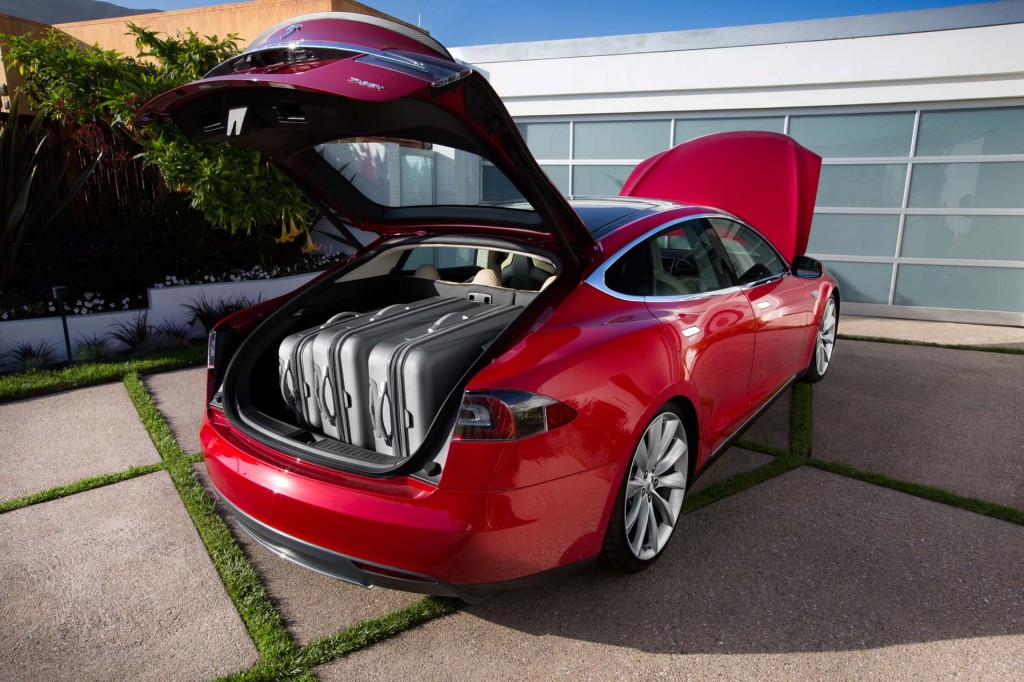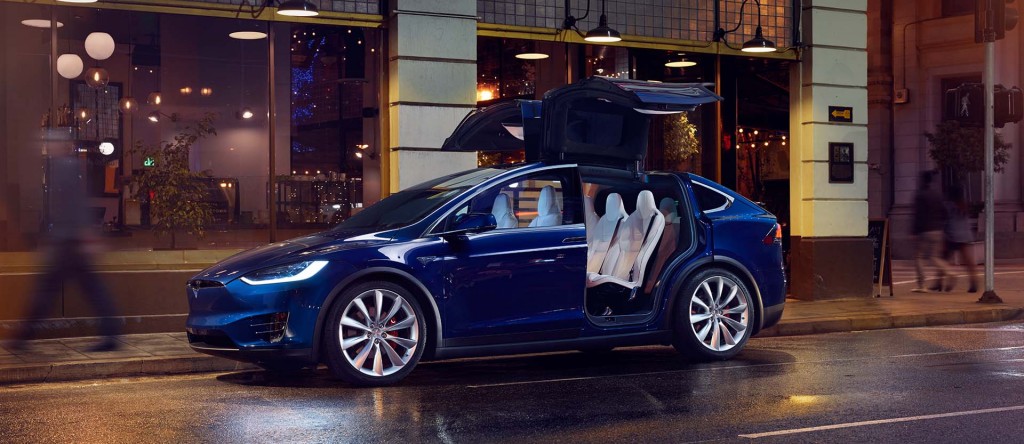If you wanted to start a green taxi service—and had ample funds to do so—Tesla electric cars would seem to be a good choice.
The Model S and Model X offer plenty of interior space and range, and their popularity would like raise the profile of any taxi service using them.
So perhaps it's not surprising that the Dubai Taxi Corporation chose Tesla when it went looking for electric taxis.
CHECK OUT: Tesla Taxis In Holland Follow Norway In All-Electric Green Cabs (Oct 2014)
The service will add 200 Model S and Model X electric cars to its fleet, reports The National, an English-language newspaper owned by the United Arab Emirates, of which Dubai is a part.
Tesla CEO Elon Musk and Mattar Al Tayer—head of Dubai's Roads and Transport Authority—signed the deal during the World Government Summit in Dubai last week.
The automaker recently opened an office in Dubai, which will coordinate delivery and maintenance of the taxi fleet.

2017 Tesla Model S
Tesla taxis have been deployed for several years in such locales as Norway and The Netherlands, and other models of electric taxi operate in various cities around the world as well.
Electric cars are typically deployed in taxi duty to reduce emissions, but that isn't the sole reason for Dubai's Tesla fleet purchase.
MORE: Tesla upgrades self-driving sensors, hardware; full autonomy test next year? (Oct 2016)
The Tesla purchase is tied to the Dubai Future Foundation's goal of using self-driving cars for 25 percent of trips within the city by 2030, according to Business Insider.
All cars built for Dubai will be equipped with Autopilot, the system now limited to driver assistance that has generated some controversy because of the potential for the public to confuse it with technology that enables true SAE Level 5 autonomous driving.

2017 Tesla Model X
Despite its name, today's Autopilot is closer to the bundles of driver-assist systems offered by other automakers than a self-driving system.
However, Musk has said the new suite of Autopilot hardware—known as "Hardware 2"—will allow fully-autonomous driving once accompanying software is developed and validated.
Tesla is now testing fully-autonomous prototype cars on public roads in the U.S.
Musk has said his goal is for a Tesla electric car to make a cross-country trip with no human assistance sometime during this year.
Once the technology is perfected, Musk has suggested Tesla could offer two variants of each vehicle it sells: cars equipped with an enhanced version of the current Autopilot, and other versions that can truly drive themselves.
_______________________________________________












